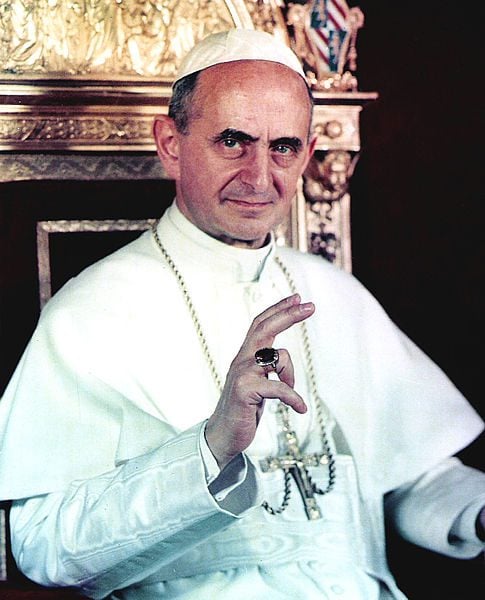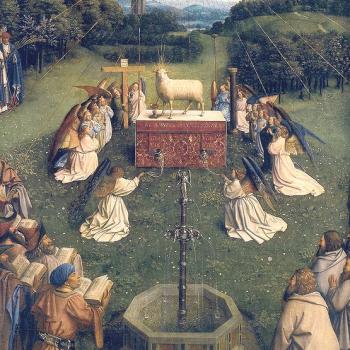Official Vatican photograph of Pope Paul VI, 1963 [public domain / Wikimedia Commons]
* * *
These are (slightly modified in places) follow-up comments I made on Facebook, under the cross-posting of my paper, Two Forms of ONE Rite (Pope Benedict XVI).
* * * * *
Abbreviations:
OF = ordinary form of the Roman Rite Mass, or New Mass, or Novus Ordo Mass, or Mass of Pope Paul VI
EF = extraordinary form of the Roman Rite Mass, or Tridentine Mass
NO = Novus Ordo Mass
* * * * *
I don’t see how such continual critiques of the NO as objectively inferior and all the rest of the usual lingo brings about unity.
Most of us who attend the OF are content to let those who prefer the EF, do so, without further comment. But vice versa, it often seems as if there are more criticisms and an unwillingness to just let the thing be; worship and let worship. What’s accomplished? You’re not gonna convince the vast majority of OF worshipers to switch to the other form.
If the faithful are allowed their preference as to which form, then they should do so without complaining about the other.
Where we can all unite is in talking about abuses, once the rubrics are properly understood. I’ve believed for 25 years as a Catholic that we can all agree on criticizing abuses, because an abuse is an abuse. But I don’t see any good coming from public criticism of one of the two forms: and the ordinary form at that.
Perhaps private discussion does some good, but I even highly doubt that. It just creates more private division rather than the more scandalous public division. And I can believe all this while agreeing that those who bring up such things have the best of intentions. That’s completely consistent with their being completely wrong at the same time.
Holy Mother Church has decided that the OF and EF are both here to stay in the foreseeable future, as two forms of one rite. For the OF to be a variant of the older rite necessarily entails an organic connection with it, contra the critical assertion that it is no development at all. If it had truly come from nowhere it couldn’t possibly be a variant or form of the one rite.
The Church won’t say that the OF is lousy and will be forbidden and allowed to dry up in the dust. That’s not gonna happen. But it can be reformed in practice, where abuses occur.
The way that the NO is being discussed is completely contrary to the tenor and tone of Summorum Pontificum and the accompanying letter to the bishops [from Pope Benedict XVI in 2007].
I think criticizing the NO is similar to what I think about criticizing popes: it should be very rare, only for the best reasons, by a certain select group: preferably quite holy persons (e.g., St. Catherine or St. Dominic, as regards popes), with the right spirit, and (usually) privately.
I’ve never said that no one could ever criticize [to provide an analogy] Pope Francis. I object to the way it’s done and the content, 99% of the time. I’ve always maintained, online (since 1996) that there are times when popes can and should be rebuked. Yet I’ve been lied about all that time by traditionalists, who claim that I don’t believe what I clearly do believe (and can document from Internet Archive).
That’s how I feel about criticism of the NO. I have also said that even if the criticisms were valid, they should be done in private, to avoid the scandal of public Catholic division, the impression of grumbling, unhappy Catholics who act like they know more than popes, and to avoid stumbling weaker brothers and sisters.
I publish these sorts of posts because I rebuke the criticisms of the Novus Ordo. I can’t totally avoid the whole issue as an apologist. The traditionalists are gonna keep it alive forever.
But I’m not simply defending the NO (though I have done that, too); I’m mostly objecting to the fact that we have these conversations in the first place: and that it’s regrettable, scandalous, and shouldn’t happen at all.













